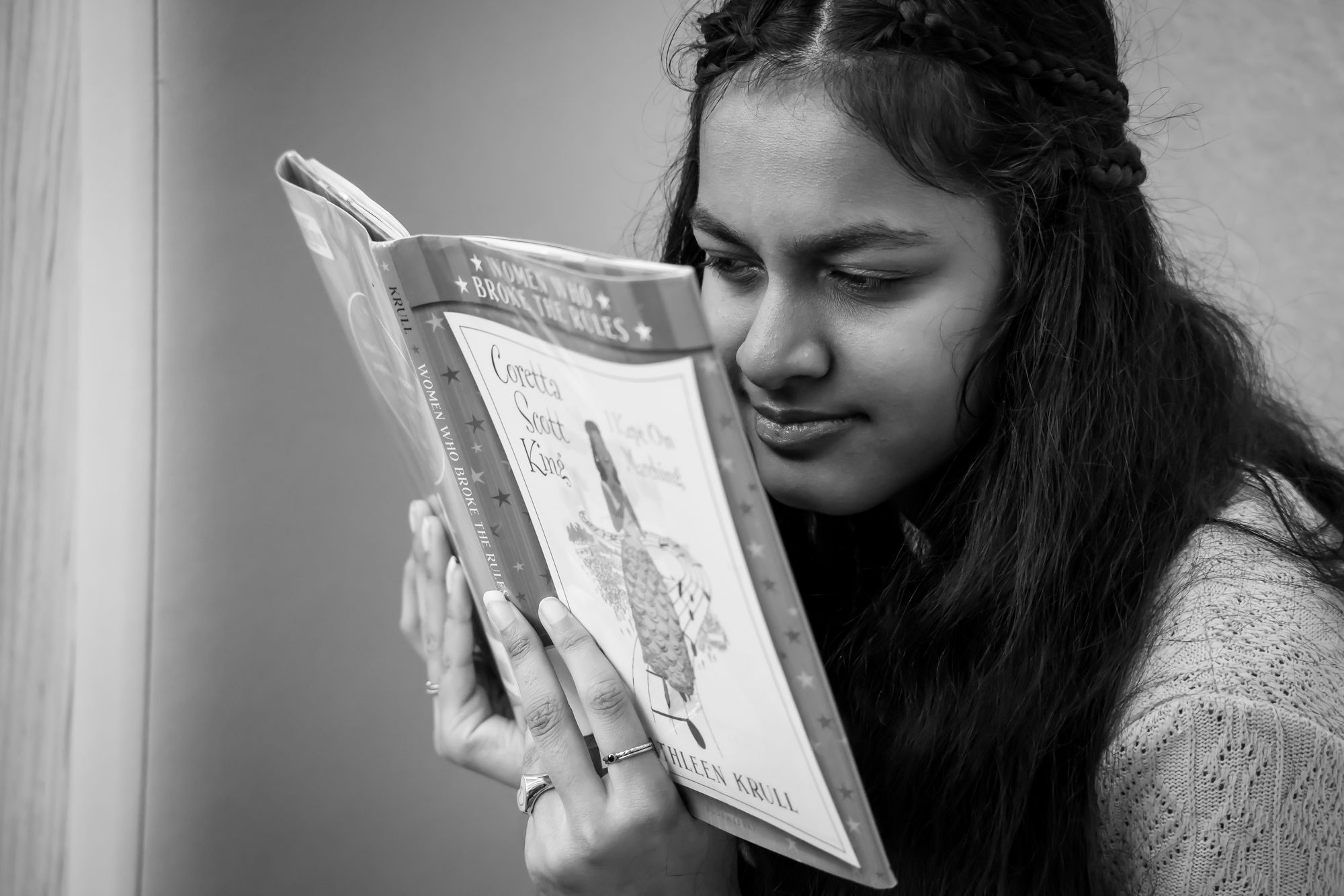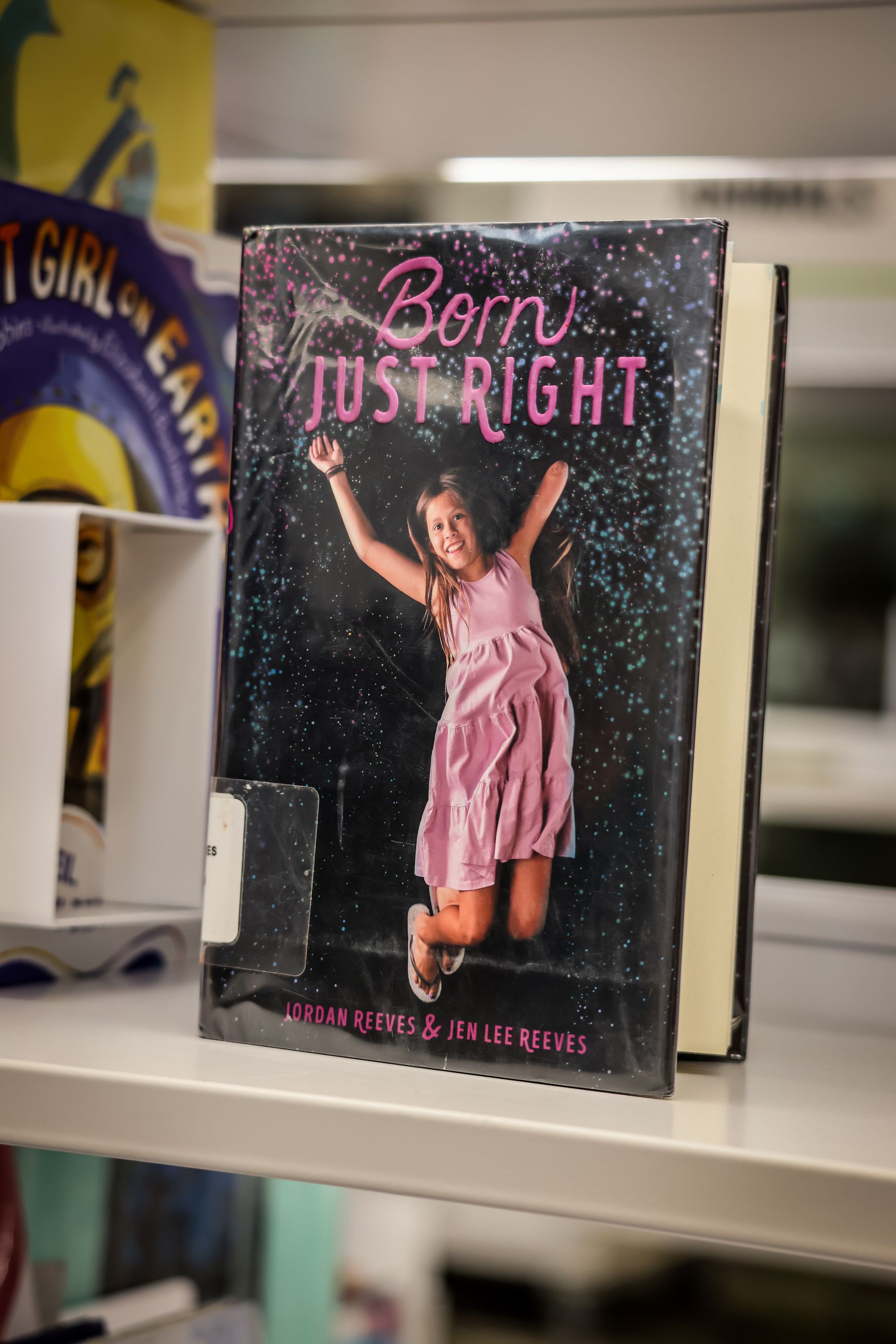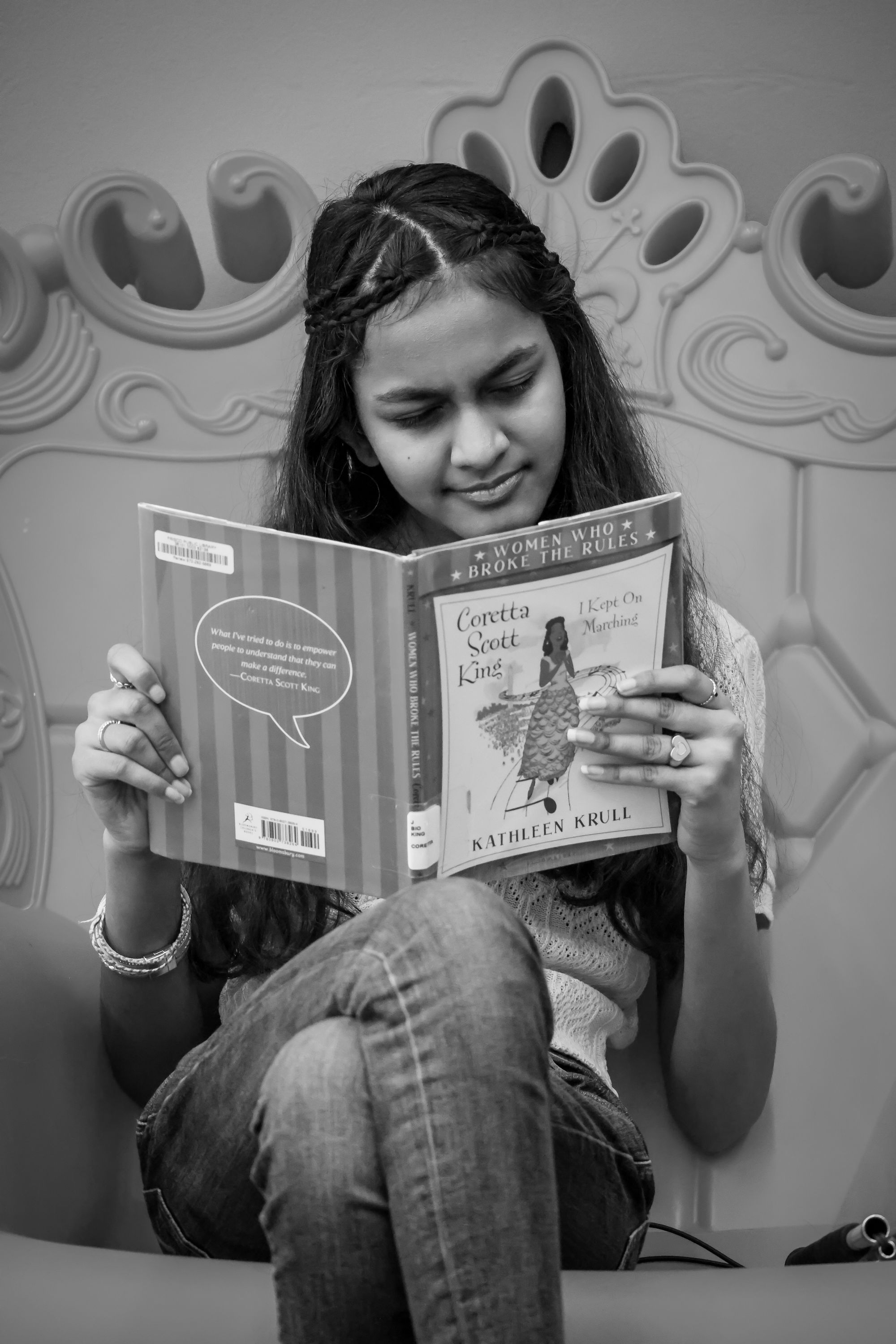
Issue 18: The Right to Read | Krishangi Shroff
Krishangi Shroff, a determined young disability advocate, shares a poignant account of her struggle to exercise her right to read chapter books in elementary school. Faced with discrimination due to her disability, her narrative highlights the importance of challenging restrictive reading practices.
I was finally old enough to get a big kid chapter book with real words, words with more meaning than picture books. Words that would let me use my imagination to paint my own pictures. I was ecstatic. I had waited for this opportunity for such a long time. It was a right of passage as an elementary school kid, and I had a long list of books that I wanted to check out and read. But only if I knew all that I would need to overcome in order to get access to the same books other kids could get access to easily!



It all started when we went to the school library to get books to read. Since we were in third grade, we were allowed to get one chapter book and two picture books. When we were in the library, looking for books, I went to the section where the chapter books were kept. I was reaching out for a book when my intervener came and told me to get a picture book and not a chapter book. I was surprised.
"The librarian told us we could get a chapter book," I said.
Listening to this, she went and spoke to the librarian, and the librarian came and told me, "Krishangi, get a picture book." I was very confused and hurt.
"Why is it that I am not allowed to get a chapter book, but other kids who are in my age group can?" I asked again.
She told me to check out books that I have the ability to read.
I tried to reason with her, "Even if I can not read, my parents or my brother usually read the books to me, and they will read these books to me."
She would not listen. I felt very sad. I went home crying to my mom and dad that day. My parents were not able to quite understand what was going on. They tried their best to make me feel better. They were not raised in this country, so they did not know this was wrong and not a standard practice. They also did not know the rules to raise a concern. My parents assured me that they would purchase all the books that I want to read, but I did not think it was fair. I felt the weight of injustice. I have been seeing so many shelves in the school library full of chapter books for years. I always felt that they were calling my name. I have been seeing other children of my age reading them. It was suffocating for me to see that I did not have the same rights as other kids of my age. I imagined a ceiling being put above my head by my school. I knew school was putting a limitation on me because I could not read like others in the class and because I am DeafBlind.
"How is my inability to read my fault? I want to read, but if I can't, how would stopping me from reading the books that I really want to read help me learn to read?" I kept thinking that to myself. My brain could not understand this.
How would stopping me from reading the books that I really want to read help me learn to read?
I felt like I had no free will. I felt like Ruby Bridges and Malala. Like them, someone was making a decision about my education.
The library incident went on through the entire third grade and continued into the fourth grade. My school kept forcing me to check out books that were "in my reading level", not my interest level. I was getting frustrated and felt discriminated against because of my disability. I was very young and did not really know how to express my feelings. I felt invisible and unheard and did not want to go to school. I started leaving my picture books in my locker as my silent protest. "That should tell them that I don't want to read 'Llama Llama..' and 'Pete the Cat' for the rest of my life.' I did not have anything against those books, but I also did not want to carry board books in my bag that I had been reading since kindergarten and could recite without even turning the pages. "I have it memorized, and if reading books at my reading level is truly going to help me with reading, shouldn't I have been an expert reader by now?" I would think.
It was two weeks before fourth-grade spring break. During one of my library days, I was able to convince my librarian and get her permission to check out a chapter book. I was on cloud nine! Sadly, it did not last long. My intervener saw the chapter book when I was putting it inside my school bag in the grade hallway, and she screamed at me in front of all the other children. I was heartbroken. I felt like I had no free will. I felt like Ruby Bridges and Malala. Like them, someone was making a decision about my education. The pain of discrimination feels the same throughout history! I was not being stopped from getting access to education because of the color of my skin, like Ruby Bridges. I was not being stopped from education and shot in my face by the Taliban because of my gender of being a girl, like Malala, BUT I WAS BEING STOPPED FROM EDUCATION BECAUSE OF MY DISABILITY. Someone was deciding for me that this is all that I was going to get because this is all that I am capable of achieving.
It felt that my choices were not mine to make. No matter what I said, she would not listen. She came with me to return the chapter book. The librarian spoke in my support, but my intervener spoke over her, too.
That night, I had a nightmare for the first time in my life. My mom came running into my room, hearing my screams. I don't remember what I was saying, but I remember that I was balling my eyes out as if there was no tomorrow. I think that was the straw that broke the camel's back. My mom no longer cared that they (my parents) could afford to buy books for me by themselves. My mom was no longer scared that she needed to be in the good books of the teachers to get help for me. My mom pulled me in a tight hug. She promised me that she would put a stop to it and she would go to the school first thing in the morning to talk with the librarian and my intervener. She was angry, and she told me she would ask why I was not allowed to get a chapter book and who was making that decision. She needed to know why they were destroying my confidence.
My mom was no longer scared that she needed to be in the good books of the teachers to get help for me.
The next morning, my mom came to my school. She went to talk to the librarian first. The librarian asked her, "What took you so long to come?" My mom did not understand what she meant and asked her to explain. The librarian told her, "It was not her decision. She did not know if the intervener was doing it on her own or at the order of someone else."
This post is for paying subscribers only
SubscribeAlready have an account? Log in


